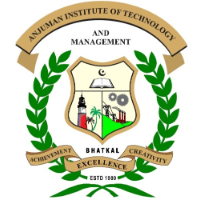We offer 5 undergraduate programs and 3 postgraduate programs at AITM. All the B.E. undergraduate programs require 62 courses.
- B.E. in Civil Engineering
Civil engineering is the professional practice of designing and developing infrastructure projects. This can be on a huge scale, such as the development of nationwide transport systems or water supply networks, or on a smaller scale, such as the development of individual roads or buildings. - B.E. in Computer Science and Engineering
Degree in Computer Science deals with the theoretical foundations of information and computation, taking a scientific and practical approach to computation and its applications. Computation is defined as any type of calculation or use of computing technology that follows well-defined models in the practice of information processing. - B.E. in Electrical and Electronics Engineering
Degree in Electrical and Electronics Engineering deals mainly with the large-scale production and distribution of electrical power, while also focusing on electronic circuits. - B.E. in Electronics and Communication Engineering
This program teaches candidates how to apply electronics technology to design, test and troubleshoot advanced devices and systems. It trains students in basic electrical theory and hands-on application, subsequently moving on to increasingly complex electrical systems, platforms, telecommunication systems and circuit design. - B.E. in Mechanical Engineering
Mechanical engineering deals with the study and application of mechanical systems. It will include subjects such as mechatronics, structural analysis, thermodynamics and engineering design. - Master of Business Administration
The masters degree in Business Administration equips students with necessary knowledge and managerial skills to occupy positions of management and administration in business, industry, public system and the government. The MBA program covers a range of areas dealing with business such as accounting, finance, marketing, human resources, and operations. - M.Sc.
- Ph.D.

